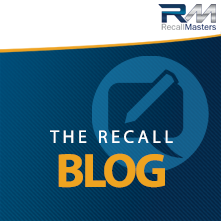Dealers: Making Responsibility Vital During a Recall
When does a recall stop being “the dealer’s problem”? In a recent Automotive News, Krishnan Anantharaman raised this very question, looking specifically at the way dealers can and should react to recalls and help enforce them.
This came after AutoNation apparently reversed its own views on proper recall behavior: According to Anantharaman, the dealership company went from devoting itself to proper recall actions to stating that “someone else” should manage a vehicle recall instead of the dealer.
This brings up an important question: How far should the dealer go to make sure the recall is successful? While it may seem too difficult or costly to stay engaged with the client, this may ultimately be to the dealer’s benefit.
A thorough recall gives dealerships more of a connection with the customer and could encourage further business. At the same time, Anantharaman noted that dealers need to be less profit-focused and do the work necessary for accurate recall tracking. This includes verifying the Vehicle Identification Numbers on any vehicles involved in an open recall.
In a larger sense, dealers may play an important role in the brand impact of a specific recall. The NADA Used Car Guide’s 2014 report on the impact of automotive recalls found that an auto brand’s reputation is traditionally only affected when the recall gains wide media attention, possibly because of any injuries attached to them. The report used dramatic recent examples, like the General Motors recalls in 2014.
Recall marketing can send a powerful message to buyers. Instead of appearing to “pass the buck” on an issue, the dealership should find the right staff and campaign strategy to reach every owner affected by a possible recall. This can extend to the less active owners who aren’t as responsive.

